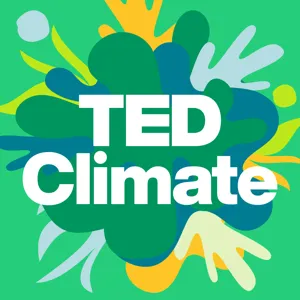Podcast Summary
The 15-minute city concept and productivity tools: Urban planner Carlos Moreno's 15-minute city concept brings essential services closer for city dwellers, reducing commuting time and noise pollution. Tools like Canva and Slack help save time and reduce stress in the workplace with AI-powered features and integrated communication platforms.
Urban planner Carlos Moreno proposes the concept of a 15-minute city, where essential services and amenities are within a short walk for city dwellers. This approach aims to reduce commuting time and noise pollution, making urban living more livable. Meanwhile, productivity tools like Canva and Slack can help save time and reduce stress in the workplace. Canva offers AI-powered features for creating presentations and summarizing content, while Slack is a platform where work happens with all your people, data, and information in one place. Lastly, the "Climate 1" podcast, hosted by Greg Dalton and Arianna Brocious, provides in-depth conversations on climate change with experts, activists, politicians, and artists, helping listeners understand the crisis and its solutions.
Designing cities for a 15-minute walk or bike ride: Cities should be redesigned to offer essential services within a 15-minute walk or bike ride, reducing dependence on cars and long commutes for improved quality of life, sustainability, and equity.
We need to rethink the way our cities are designed and function to improve the quality of life for urban dwellers. The concept of the "15-minute city" suggests that cities should be designed or redesigned so that within a 15-minute walk or bike ride, people can access essential services and experiences, such as work, housing, food, health, education, culture, and leisure. This approach aims to bring life back into a human-sized scale and reduce the need for long commutes and dependence on cars. To create such cities, we must start asking critical questions about how we use urban space and resources, and ensure that necessary services are readily available in every vicinity. This shift towards more livable, sustainable, and equitable cities is crucial for our well-being, justice, and the climate.
Reimagining Cities with the 15-Minute Principle: Paris is pioneering the 15-minute city concept, focusing on decentralization, new services, reducing traffic, local shops, and transforming infrastructure to ensure access to key services within a 15-minute walk, prioritizing people over cars and improving overall quality of life.
We need to reimagine our cities based on the principles of the 15-minute city to make urban life more pleasant, agile, healthy, and flexible. Paris, France, is leading the way with a "big bang of proximity," which includes decentralization, developing new services, reducing traffic, encouraging local shops, and transforming existing infrastructure. The goal is to ensure everyone has access to key services within a 15-minute walk, making neighborhoods where we can live, work, and thrive without constant commuting. The 15-minute city prioritizes people over cars, with each square meter serving multiple purposes. It challenges the notion that saving time is the ultimate goal, suggesting instead a different pace of life. This approach can help reduce commuting time and improve overall quality of life.





